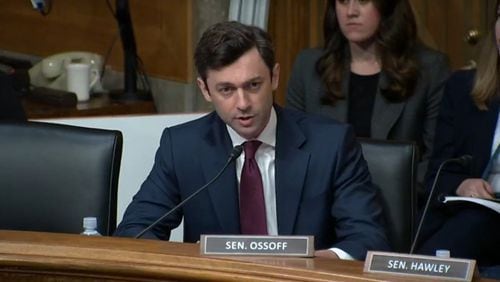Autism advocates say they will push for expansion next year on Georgia's recent mandate to guarantee insurance coverage of children 6 and under, including a call to raise or remove the age cap.
Anna Bullard, whose now-12-year-old daughter, Ava, inspired what is informally known as Ava’s Law, said this week that she and other supporters have been encouraged by lower-than-expected costs for coverage offered through the state health benefits plan. And since the state plan has a slightly higher cap and includes kids through age 10, they believe they can make a similar argument for coverage from private insurers.
They are also pushing state officials to include coverage under Medicaid.
“The benefit for a child to continue to receive benefits far outweighs the pennies that it costs a company to keep moving forward,” said Bullard. “We can’t just settle and say getting services through age 6 is enough.”
Advocates say children benefit when they can begin applied behavioral therapy for autism —which is what the insurance helps pay for — early. They also argue it reduces costs as kids enter the public school system and may need individualized education plans.
Opponents, however, said it risks increasing health insurance premiums across Georgia. House leaders had fought the bill for years, arguing it would hurt small businesses that provide insurance coverage for employees. But in the waning days of the 2015 legislative session, they and Senate leaders reached a compromise.
It ended a years-long struggle by parents and advocacy groups to gain a level of coverage offered in many other states. At the time the Georgia mandate passed, 38 states were already requiring coverage of autism, including behavioral health treatment sought by parents here.
State law now requires insurance companies to provide up to $30,000 a year of coverage for children age 6 and under. Businesses with 10 or fewer employees are exempt. Insurers are exempt from having to cover autism if they can verify it would raise all premiums by more than 1 percent.
About the Author






